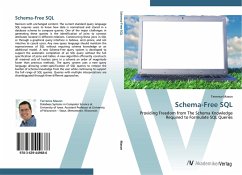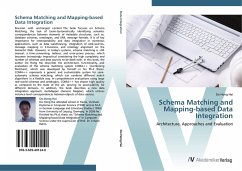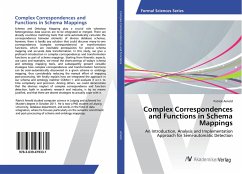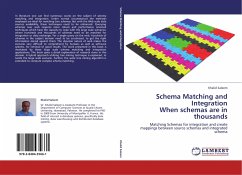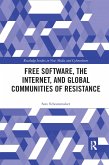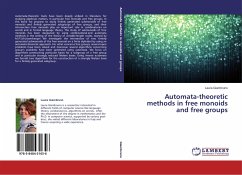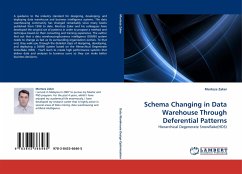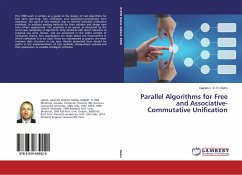Revision with unchanged content. The current standard query language SQL requires users to know how data is normalized and stored in a database schema to compose queries. One of the major challenges in generating these queries is the identification of joins to connect attributes located in different relations. Constructing these joins in SQL or through a graphical query interface is tedious, error-prone, and not intuitive to casual users. Any new query language should maintain the ex pressiveness of SQL without requiring schema knowledge or an additional model. A new Schema-Free query system is developed to support the automatic completion of an SQL query without the full specification of joins and tables. A new algorithm efficiently constructs all maximal sets of lossless joins in a schema an order of magnitude faster than previous methods. The query system uses a new query language allowing under-specification of SQL queries to remove the burden of schema knowledge from the user while continuing to support the full range of SQL queries. Queries with multiple interpretations are disambiguated through three different approaches.
Bitte wählen Sie Ihr Anliegen aus.
Rechnungen
Retourenschein anfordern
Bestellstatus
Storno

